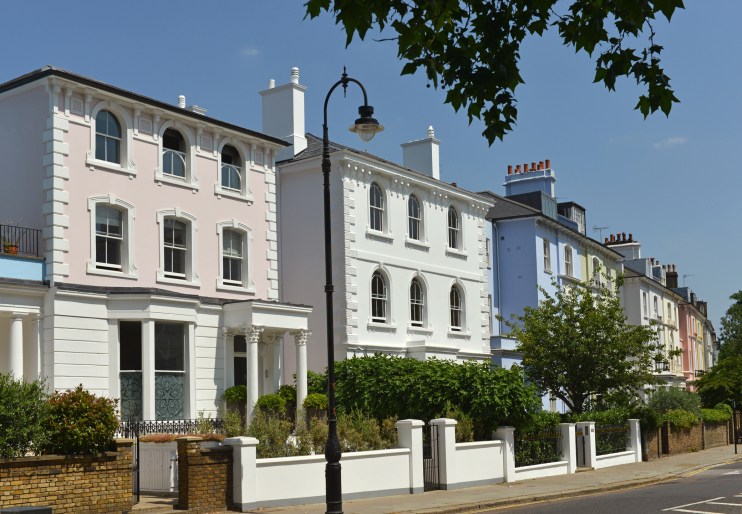Wednesday 19 November 2025 2:35 pm
Share
 Prime London Houses in desirable London neighbourhood
Prime London Houses in desirable London neighbourhood
A mansion tax in next week’s Budget could stifle property markets and disproportionately harm homeowners in London, Manchester and Edinburgh, tax experts have warned.
Rachel Reeves is reportedly planning a mansion tax raid on high-value properties, as she takes a “smorgasbord” approach to the Budget after last week’s dramatic income tax U-turn.
The Chancellor has told Labour MPs to champion the coming mansion tax as a measure hitting wealthier people the hardest, and sparing working people.
While Reeves could pull various levers to produce a tax on mansions, City AM reported last week that she is favouring a council tax surcharge on expensive homes.
Houses over a certain value, such as £1.5m, would face an additional 1 per cent tax on the value above that level, meaning a home worth £2m would have to pay an extra £5,000 a year on top of its existing council tax.
The tax risks stagnating the property market because it will take money out of the pockets of the only people who can afford to buy high-value properties, experts claim, which could lead to slowing sales of up-market homes.
Chris Ball, CEO of Hoxton Wealth, said: “It’s going to lead to a stagnant property market again. Cities like London, Manchester and Edinburgh could be hit particularly hard.”
Sean Dury, a senior tax partner at audit advisory firm Blick Rothenberg, told City AM that a mansion tax would hit London properties where the value has increased since the 1991 council tax assessments due to the “failure” of housing strategy rather than the quality of the houses.
The Government should consider reliefs on the mansion tax for London properties to mitigate this, he said.
Dury said: “Property Taxes have always been emotive, especially in London, so necessary policy changes should not be just headline grabbing but well thought through to avoid unintended consequences.”
Sean Bannister, tax advisor at Edwin Coe, said the Government should pair council tax reform with changes to stamp duty and a lower charge on residential property transactions.
Bannister said: “The regime as it stands is stifling movement across the market and is stopping people achieving their ambitions and desires, part of which may be owning a home, but also can be as broad as changing local area for new job or business opportunities, growing ones family and even downsizing to free money to gift to the next generation.”
Read more
If Reeves can’t cut tax, she could at least make it more competitive
The Government’s attempts to focus the Budget’s tax rises on those with the “broadest shoulders” could have unintended consequences, Bannister said.
He added: “How broad is becoming a real question now, and the Chancellor needs to have pause about what feels like an increasingly personal attack on a mobile demographic.”
City AM has revealed the UK is in the grips of a “brain drain” which is three times larger than previously thought.
London’s super-rich are already ditching London mansions for flats and considering leaving the country altogether, a leading developer has warned.
Though Reeves is said to be favouring a council tax surcharge, other possible forms of a mansion tax include introducing a new higher band or doubling the rate of tax charged on properties in the two highest current bands, G and H.
The Chancellor could also use capital gains tax to target high-value properties, by ending the exemption on primary residences for properties valued above a certain figure, which could be set at £1.5m.
Experts have warned that targeting the top bands of council tax could produce a “granny tax” which disproportionately affects elderly Brits.
41 per cent of homes in bands G and H are “pensioner-owned,” according to economists at Public First.
Campaigners are pushing for the Government to scrap council tax and stamp duty entirely, and instead introduce a new system of property tax based on the current value of homes.
Fairer Share claims that a new “proportional property tax” could raise £10bn per year for the Treasury, and would save owners of the 10 million lowest-value homes an average of £580.
Andrew Dixon, founder and chair of the campaign, said: “The current council tax system is outdated, unfair, and leaves millions of households paying far more than they should relative to the value of their homes.
“A proportional property tax would simplify the system, cut bills for the majority of households, and end the postcode lottery created by 1991 valuations.”
Read more
Super-rich ditch London mansions for flats, developer says
Similarly tagged content:
Sections
Categories
People & Organisations